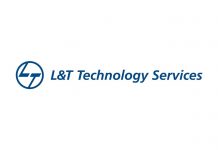Accelerating the deployment of connected cars, the GSMA and the 5G Automotive Association (5GAA) signed a three-year cooperation agreement. The global trade groups will work across industries to focus on privacy/security, common standards and target the 5.9GHz spectrum band specifically for the internet of vehicles.
In Asia, Europe and the US, ideas around connected and autonomous mobility are expanding to include new industries and technologies. How and what people drive will change radically over the next decade. Collaboration will be key, while governments should remain technology-neutral in their policies on connected vehicles.
The push for C-V2X will not only help save lives, but also, improve the quality of life in smart cities. Each year about 1.35 million people die worldwide in traffic accidents, the majority caused by human error, according to the World Health Organization. As V2X technology evolves that number should decline. The US Department of Transportation estimates that V2X could save more than 1,000 people a year in the US and reduce non-fatal injuries by 2.3 million.
Meanwhile, traffic congestion accounts for 15 billion litres (4 billion gallons) of wasted fuel in the US every year. Cleaner vehicles and smarter route choices will help reduce greenhouse gas emissions, 14% of which come from global transportation, according to the US Environmental Protection Agency.













